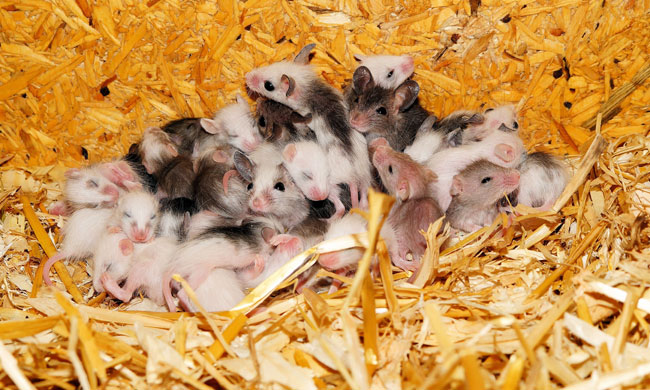
The same hormone that stimulates milk production for lactation, also acts in the brain to help establish the nurturing link between mother and baby, University of Otago researchers have revealed for the first time.
The researchers found that signalling by the hormone prolactin to its receptors in a specific brain region is essential for mothers to show vitally important maternal nurturing behaviour towards their young. This finding raises the question, is this brain circuitry the “feel good” factor to encourage breast feeding?
Prolactin is best known for its role in enabling milk production in mammals.
The research team at the University's Centre for Neuroendocrinology undertook targeted deletion of prolactin receptors in the preoptic area of the brains of adult female mice.
Study co-author Dr Rosie Brown says the team observed that these mice without prolactin receptors were able to get pregnant and give birth normally, but abandoned their litters around 24 hours after birth.
The research is newly published in the prestigious international journal PNAS.
“Our findings establish a critical role for prolactin for more than simply milk production. This work is the first to show this hormone is a literal life saver in that it establishes and maintains the normal parental care that ensures offspring survival.”
Disruptions in the ability of prolactin to communicate in the brain could lead to problems for mothers establishing a bond with their baby. This may in part explain issues with some animal species abandoning their young, she says.
This work was supported by Health Research Council of New Zealand Grant and a Marsden Grant from the Royal Society of New Zealand.
For more information, contact:
Dr Rosie Brown
Research Fellow
Department of Anatomy/Centre for Neuroendocrinology
University of Otago
Tel +64 3 479 3442
Email rosemary.brown@otago.ac.nz
Publication details
Prolactin action in the medial preoptic area is necessary for postpartum maternal nursing behavior
Rosemary S. E. Brown, Mari Aoki, Sharon R. Ladyman, Hollian R. Phillipps, Amanda Wyatt, Ulrich Boehm, and David R. Grattan
doi:10.1073/pnas.1708025114
A list of Otago experts available for media comment is available elsewhere on this website.
Electronic addresses (including email accounts, instant messaging services, or telephone accounts) published on this page are for the sole purpose of contact with the individuals concerned, in their capacity as officers, employees or students of the University of Otago, or their respective organisation. Publication of any such electronic address is not to be taken as consent to receive unsolicited commercial electronic messages by the address holder.
